

PM VOWS TO CRUSH PAKISTAN’S ENEMIES THROUGH COLLECTIVE EFFORTS
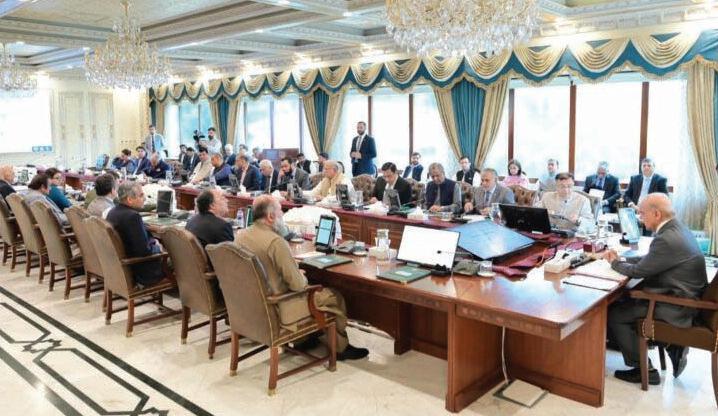
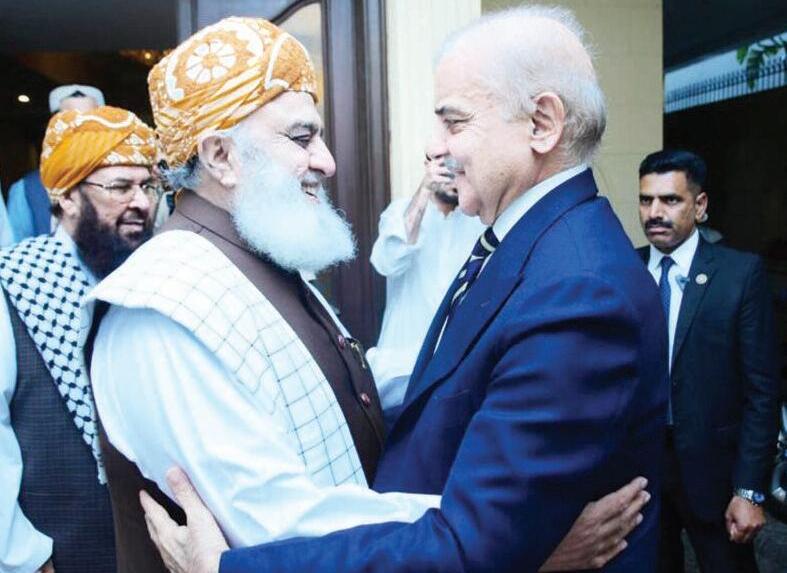
the floods According to Tehsil Nazim Kalkot, Zia-ur-Rehman, hundreds of tourists and vehicles are stranded in Kumrat He has appealed to the provincial government for assistance in rescue and recovery efforts
Political leadership, not militar y capable of uniting people: Imran
S TA F F R E P O R T
Incarcerated Pakistan Tehreek-eInsaf (PTI) founder Imran Khan on Friday asserted that only political parties can unite the people not the military Had the military could unite the people, we would not have lost East Pakistan,” he remarked while talking to journalists in Adiala jail on Friday
PTI is the only party capable of bringing the nation together he boasted expressing his concern about the country s economic situation, describing it as the greatest challenge facing Pakistan
“I heard earlier that investment in the country was at its lowest in 50 years but now I ve learned that this year it s at the lowest in history
The nation s income is dwindling, debts are rising, and the country is heading towards destruction ” he stated blaming political instability and growing terrorism for the worsening economy Imran criticised the February elections, calling them fraudulent and responsible for the ongoing political instability
“On one hand they blame us for the rise in terrorism due to our settlement plans and now they claim it s due to cross-border terrorism, he said
He questioned who would invest in a country plagued by terrorism from the TTP criminals in Kacha and insurgency in Balochistan while secret agencies
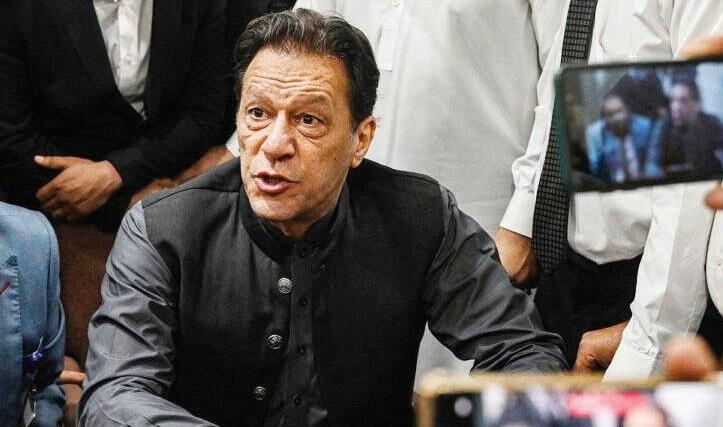
are focused on dismantling PTI Imran warned of the growing threat of provincialism in Pakistan, pointing to protests in Punjab over terrorism in Balochistan
“PTI is the only federal party; the rest are regional If PML-N and PPP stop honouring the boots they will be finished, he remarked, adding that PTI is the only party present in all four provinces and capable of uniting the nation
He expressed concern that the only federal party in the country is being weakened
Those making these decisions have no concern for the country Given the current situation in Balochistan our efforts should be directed towards bringing the Baloch people on board he said
Imran also addressed the recent postponement of the Islamabad rally, noting that it had angered party workers
“Other parties are holding ral-
lies but we weren t allowed a single one We postponed the rally out of concern for the nation, to prevent further chaos,” he explained
He made it clear that there is no place in PTI for those who left the party during difficult times I know who abandoned us during bad times There are very few who left the party out
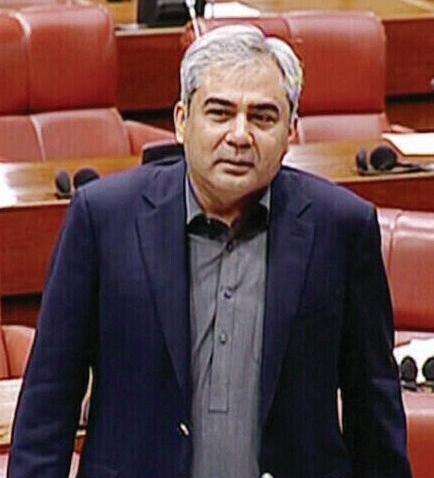
RAWALPINDI

USA BECOMES TOP DESTINATION FOR PAKISTANI EXPORTS IN JULY
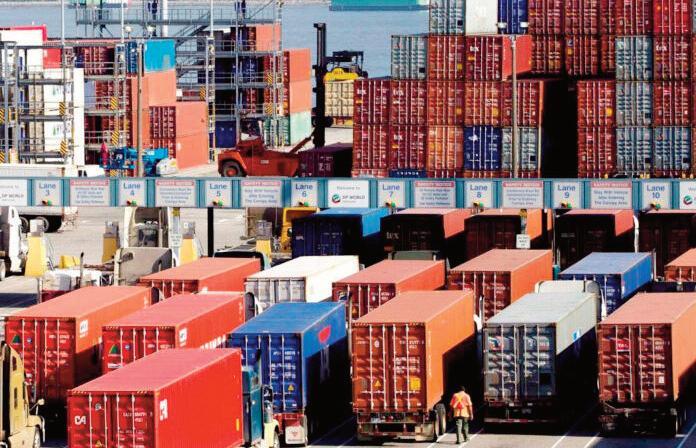

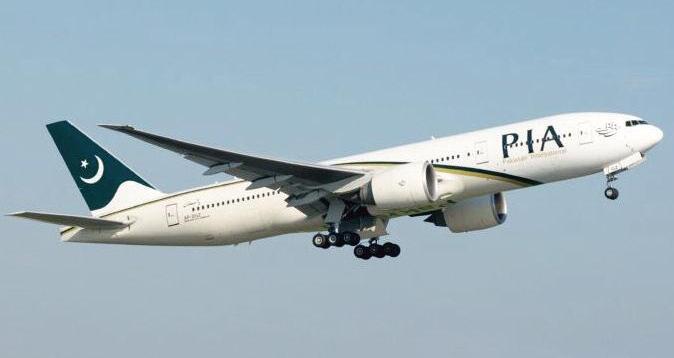

ECC EASES BIDDING RULES FOR $2B K ARAKORAM
HIGHWAY PROJECT WITH CHINA


has made
condensate discovery at the Baloch-2 well in the exploratory zone of Sembar Formation, in Baloch Development and Production Lease (D&PL), Sinjhoro Exploration Licence, located in District Sanghar, Sindh Province ” read the OGDCL’s notice to the PSX Ad powered by advergic com Baloch-2 well was spudded in on February 24 2024 and drilled down to a total depth of 3920m TVD in Sembar Formation as an exploratory effort by OGDCL, with in-house



The Rashakai
TH E China-Pakistan Economic Corridor may have appeared, as over-enthusiastic supporters tried to hype it, as China springing to the rescue of Pakistan However, it should have become clear that China was putting money into the development of Pakistan as a sort of hinterland This was all based on Gwadar being developed as a port where oil would be brought in from the Persian Gulf refined and then shipped onwards For this Pakistan’s north-south road network rail network and pipeline network all had to be modernized An important part of the plan was supposed to be a number of Special Economic Zones, essentially industrial estates, where Chinese and local firms would set up plants making goods for export One of the presumptions was that there would be adequate power Therefore China invested in power projects, so as to end the power shortages [plaguing the country So as to show what the concept was, the Rashakai Economic Zone was to be run by the RSEZ Development & Operations Company a specialpurpose Chinese form The company has now written to the Power Secretary6 complaining that the failure to resolve power issues could jeopardize Chinese investment which is essential for the success of the SEZ As it is the first of nine planned to become operational by 2030, it is the proverbial feather in the wind, which will be watched closely by those Chinese firms planning to invest in Pakistan, and referenced by those which are not even contemplating such an investment, but might wish to consider the idea sometime in the future The pity is that the issue is one of electricity Like the problem in the country as a whole, where the distribution network has not kept pace with the additions in generative capacity the SEZ has not got an assured electricity supply This is apart from PESCO’s desire to charge the commercial tariff rather than the industrial The industrial tariff has been the lowest and the commercial the highest This could render investments unviable even if power supply could be assured
The whole affair makes a distinct possibility that the PESCO officials are secretly wanting to be gladhanded They appear to have taken on the RSEZXDOC, daring it to go up the chain of command That it has done It is now up to the government to

Dedicated to the legac y of late Hameed Nizami Arif Nizami (Late)
M A Niazi Editor Pakistan Today Babar Nizami Editor Profit
The future of Pak Afghan border
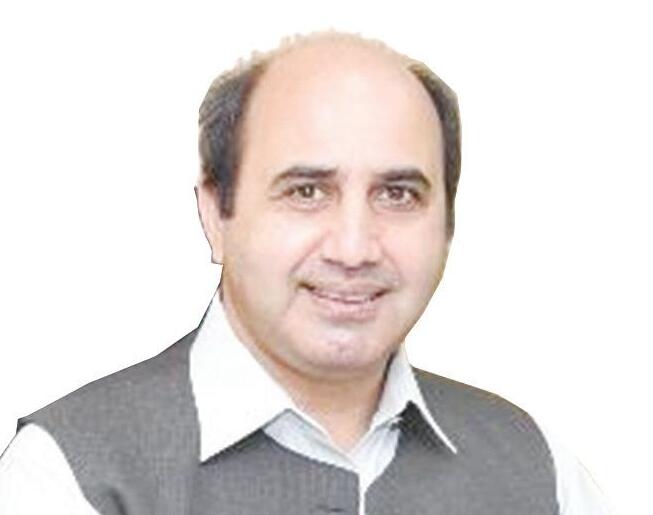
Dr Zafar Khan SafDar
N the rugged terrains of South Asia, where the borders of Pakistan and Afghanistan intersect with the ancient Silk Road a story of strained relations unfolds Both nations each with a rich heritage of history and culture have traversed a complex path marked by disputes and tensions Yet, beneath the surface of these historical conflicts lies an opportunity that could reshape their futures, one that involves looking towards the Central Asian Republics and exploring new economic avenues with neighbouring countries including India
The roots of Pakistan and Afghanistan s strained relations are deep and multifaceted Historical grievances and political disputes have created a labyrinth of animosity The Durand Line, a relic of colonial demarcation, has been a persistent source of friction
This border, drawn by the British in 1893, was never fully accepted by Afghanistan and it continues to be a contentious issue The Soviet-Afghan War which saw Pakistan supporting Afghan Mujahideen against Soviet forces further complicated matters leaving a legacy of mistrust The aftermath of the 9/11 attacks and the subsequent War on Terror introduced new dimensions to their fraught relationship, with accusations and mutual blame adding to the burden However amid these complexities an opportunity arises from the rich resources and strategic positions of the Central Asian Republics These nations Kazakhstan Uzbekistan Turkmenistan Kyrgyzstan and Tajikistan, are endowed with vast reserves of gas and energy Their geopolitical significance and resource wealth present a chance for Pakistan and Afghanistan to forge new alliances and bolster their economies With a burgeoning population and growing energy needs Pakistan finds itself at a critical juncture Its economy while vibrant suffers from energy shortages that hinder industrial growth and overall development The CARs, with their vast natural gas reserves, offer a potential solution Establishing energy ties with these countries could help alleviate Pakistan’s energy crisis Projects such as the Turkmenistan-Afghanistan-Pakistan-India (TAPI) pipeline represent a strategic step towards integrating Central Asian resources into Pakistan s economy This pipeline, designed to transport natural gas from Turk-
I n d i a ’ s n u c l e a r s a f e t y a n d s e c u r i t y d i l e m m a
menistan through Afghanistan to Pakistan and India has the potential to provide a stable energy supply and foster regional cooperation For Afghanistan, the path is equally promising
The country’s strategic location makes it a crucial transit route for Central Asian energy exports By positioning itself as a key player in the energy transit sector Afghanistan can leverage its geographical advantages to accelerate its own economic development The potential revenue from transit fees and increased investment could provide much-needed resources for rebuilding and stabilizing the nation Building stronger economic ties with Central Asia also opens the door to broader trade opportunities
Both Pakistan and Afghanistan can benefit from integrating into the regional trade networks that span Central Asia The development of trade routes connecting these countries with the Central Asian markets could stimulate economic growth and provide new avenues for commerce
Improved connectivity could facilitate the export of Pakistani textiles and agricultural products to Central Asia while Afghanistan could benefit from increased trade in minerals and other resources Yet the potential benefits of these economic opportunities are not just limited to energy and trade The growing economic interdependence could also contribute to political stability and foster a more collaborative relationship between Pakistan and Afghanistan As both nations work together to harness the resources and opportunities offered by Central Asia they may find
A f g h a n i s t a n b o rd e r h i n g e s o n t h e p o t e n t i a l t r a n s fo r m a t i o n t h a t c o u l d a r i s e f ro m r e d r aw i n g e n e rg y ro u t e s a n d l ev e r ag i n g e c o n o m i c o p p o r t u n i t i e s t h ro u g h
C e n t r a l A s i a a n d n e i g h b o u r i n g c o u n t r i e s , a c r u c i a l s t e p fo r a ch i ev i n g b o t h e c o n o m i c a n d r e g i o n a l s t a b i l i t y


Lcontrol of the country s Nuclear Command Authority (NCA), an amalgamation of political leadership and civilmilitary bureaucracies Despite having the strong assertive NC&C system as has always been propagated the theft cases of dangerous radioactive material are raising a finger at the safety and security protocols of the Indian nuclear programmrs The facility, BARC, from where such theft cases have occurred, comes under government’s oversight and operates under the Department of Atomic Energy (DAE) The technical aspect of such radioactive substances can be argued that the quantity of theft substances recovered from
once twice but evidently three times in four years which is an alarming sign This reveals the inadequacy of the Indian authorities in ensuring foolproof security in this regard The Ministry of Foreign Affairs of Pakistan has issued a brief, yet calculated statement on the issue “These recurring incidents call into question the measures taken by New Delhi for the safety and security of nuclear and other radioactive material These incidents also suggest the existence of a black market for sensitive, dual use materials inside India The apprehension that if theft cases of these sorts are continuously taking place in India, then there might be a possibility of an illegal market place where such toxic substances get sold as well The international community is not unaware of India s history of transparency in nuclear exchange agreements India developed its first atomic bomb in 1974 from a nuclear plant provided by Canada for peaceful purposes India cheated and violated the norms for peaceful uses of nuclear technology Despite this blatant violation of the civil nuclear cooperation agreement the international community and institutions played an unproductive role in hindering India from pursuing this dangerous path,
instead indirectly providing India with technical and technological knowledge in this regard Now, all eyes are fixed on the international community and institutions on how they are going to react to this threatening situation However it is also a bitter fact that India got away with similar cases in the past as well only because it is one of the strategic partners of the USA, which plays a crucial role in the 21s century Great Power contest Apart from that, from a nuclear safety and security perspective, these theft cases must be dealt with seriously because if such radioactive materials irrespective of the quantity reached the hands of rogue elements it could cause an unimaginable damage that will threaten vital security interests of the USA as well in the region Therefore, interference by the International Atomic Energy Agency (IAEA) responsible for the safety and security of the civil nuclear reactors of Nuclear Weapon States has become imminent Additionally Pakistan and China need to raise this issue proactively at the international forums in order to make the world realize the severity of the issue because neglect of these incidents would be quite detrimental for regional peace and security
The writer is a Research Officer at Balochistan Think Tank Network (BTTN) Quetta
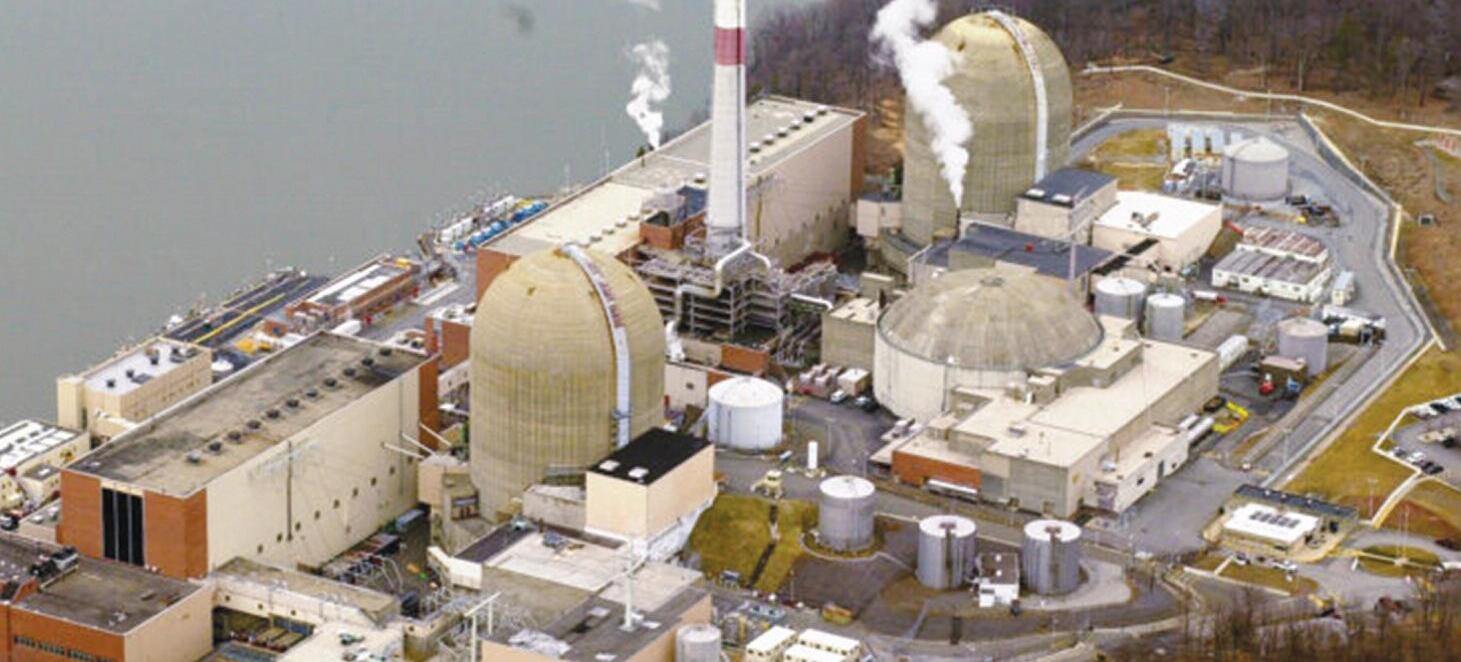
T h e r e fo r e , i n t e r fe r e n c e by t h e I n t e r n a t i o n a l A t o m i c E n e rg y
A g e n cy ( I A E A ) r e s p o n s i bl e fo r t h e s a fe t y a n d s e c u r i t y o f t h e
c i v
m i n e n
e g l e c t o f t h e s e i n c i d e n t s wo u l d b e q u i t e d e t r i m e n t a l fo r r e g i o n a l p e a c e a n d s e c u r i t y
Unsurprisingly,
MuhaMMaD uSaMa KhaliD



CO M M U N I T Y engagement goes beyond being just a trendy term it s essential for creating strong, resilient communities By involving residents in decision-making activities and initiatives we foster a sense of ownership enhance quality of life and strengthen neighborhood connections Community engagement is about working together with local members to tackle issues, solve problems, and improve community well-being It’s a collaborative process where both the community and organizations share their knowledge skills and resources This participatory approach ensures that the needs and perspectives of all involved are considered Active involvement helps create a sense of belonging and reinforces social ties When people participate in community activities they’re more likely to support each other and work towards common objectives This involvement leads to better-informed and more effective decisions, as diverse viewpoints and local insights can be incorporated to address specific community needs Open communication and joint efforts build trust between community members and institutions reducing misunderstandings and fostering positive relationships Empowering community members to take part in decision-making boosts their initiative and promotes self-sufficiency Engaged communities are more likely to support and sustain initiatives over time In many regions the military’s role extends beyond national defense to include community engagement By connecting with local populations and participating in community activities, the military can strengthen relationships with civilians, contribute to national stability, and support social develop-
ment Military community engagement involves the armed forces actively participating in civilian life and local development projects through humanitarian assistance, disaster relief, educational programs, and public health initiatives The aim is to build strong, respectful relationships between military personnel and the communities they serve
Such engagement fosters trust and understanding between civilians and the military, which is vital for public support and cooperation during times of national need or crisis Strong community connections can improve intelligence and enhance responses to security threats When communities view the military as a supportive partner they re more likely to collaborate on safeguarding national security
The military s resources and expertise are also valuable in disaster response and community resilience-building, addressing local needs and contributing to regional development The military s involvement in infrastructure projects educational programs and health services can leave a lasting positive impact For military personnel, engaging with the community offers opportunities for personal growth and professional development fostering a deeper sense of purpose and alignment with the broader mission of national service
Recently the Pakistan Army has increasingly focused on social entertainment and youth engagement to promote national unity, civic responsibility, and personal development among the younger generation This approach demonstrates a sophisticated understanding of how structured recreational activities and community involvement can influence the nation s future The Pakistan Army actively engages with youth through sports and cultural events It organizes various sports tournaments, such as football, cricket and basketball open to both military personnel and civilians These events aim to promote physical fitness teamwork and a sense of national pride and unity Additionally, the Army supports and hosts cultural events that celebrate Pakistan s rich heritage These occasions offer young people a platform to display their talents in music, dance, and the arts fostering cultural identity and appreciation By engaging youth in these activities the Army helps them connect with their heritage and gain a deeper understanding of their national identity
Recognizing the significance of educa-
tion and skill development the Pakistan Army has introduced several initiatives to empower young people These initiatives include scholarship programs, vocational training centers, and collaborations with educational institutions The Army’s educational programmes are crafted to equip youth with the necessary skills for success in their chosen fields whether they aim to join the military or pursue other careers Skill development programmes, often in partnership with private sector entities, provide training in various trades and professions, enhancing employability and personal growth
The Army also emphasizes community service and volunteerism as a means to engage youth Through activities like clean-up drives, disaster relief efforts, and community development projects, the Army encourages young people to actively serve their communities, fostering a sense of responsibility and civic duty while reinforcing the values of service and solidarity In addition to hands-on community involvement the Army engages in educational outreach by visiting schools and colleges to discuss military life, leadership, and national service This provides students with valuable insights into the Army’s role and may inspire them to consider careers in the armed forces or other public service fields
In today s digital age the Army has adapted by leveraging technology to connect with young audiences
The Army s social media presence allows it to share updates, promote events, and interact with young people in real time Tournaments organized by the Army offer both entertainment and opportunities for young people to engage with the Army in an enjoyable and interactive way
Furthermore, the Army s various programmes focus on developing leadership skills and teamwork among youth Leadership camps team-building exercises and workshops are designed to help young people build essential life skills such as problem-solving, communication, and resilience
These programmes aim to prepare individuals for future challenges, both personally and professionally, by providing structured environments for learning and growth In a rapidly changing world the role of youth in shaping the future of a nation is crucial and the Army s initiatives play a significant part in fostering the next generation of leaders and contributing to societal development Acknowledging the importance of youth engagement the Pakistan Army has made notable efforts to connect with younger generations through a range of initiatives
H o w J u n a g a d h w a s p e r s u a d e d t o j o i n I n d i a

lips, amused at the jolt Junagadh’s accession to Pakistan would give the Congress high command
mained an elusive dream
The
state was a seafaring kingdom in Kathiawar but shared no land connectivity with Pakistan And yet as he waited in his new study in Karachi for a phone call from the diwan of Junagadh he couldn t help but wonder how that little princely state could become a key player in his masterstroke Junagadh was a political oddity It had a Hindu majority in population and an eccentric nawab who was Muslim Parts of other princely states that had acceded to India were interspersed in Junagadh; and fragments of Junagadh were enclosed within the boundaries of its neighbouring states It had the holiest of Hindu and Jain temples, and a staunch Muslim Leaguer named Shah Nawaz Bhutto as diwan Mr Bhutto on the line sir Jinnah s ADC said interrupting his musings Jinnah cleared his throat and picked up the receiver, Good morning, Shah Nawaz What’s the news?”
“Uh not good I’m afraid ” sighed Bhutto the Sindhi Muslim Leaguer from Karachi who had taken over only recently from his ailing predecessor as Junagadh s prime minister The nawab s constitutional adviser, Mr Nabi Baksh, has advised him to join India ” Bhutto apprised Jinnah “And the nawab himself appears to favour participating in an association of Kathiawari states Hmm Jinnah threw his head back to gaze at the ceiling Well that can change Quaid-e-Azam, the nawab has just returned from a holiday in Europe,” said Bhutto through the crackling line “I am doing my best to convince him ” Good Jinnah released a puff of smoke You must keep at it But there are other voices added Bhutto, regional voices, urging the nawab to join India ”
“Junagadh must not fear Indian threats ” Jinnah reassured him “You are not far from Karachi by sea Pakistan will not allow Junagadh to be stormed Right sir Bhutto pursed his
But remember added Jinnah lightly touching the little green flag of Pakistan on his desk, astutely aware that the timing of a strike was almost as critical as the blow itself, “keep out under all circumstances until 15 August ” Sardar ’s heart sank as he caught sight of the screaming headline His mouth dry his mind numb he bent down and picked up the newspaper He had just returned from his morning walk in Lodi Gardens, past euphoric crowds waving the tricolour, celebrating India’s dawn of independence; and here already was the first stab in her back His eyes scanned the article:
JUNAGADH ACCEDES TO PAKISTAN!: The government of Junagadh has been faced with the problem of making its choice: accession to India or Pakistan After anxious consideration and careful balancing of factors the Government of Junagadh has decided to accede to Pakistan
Sinking into a chair, Sardar squeezed his eyes shut It was 17 August 1947, only days since they had all taken their first breath as citizens of a free nation Partition had been a bitter pill to swallow but they had forced it down with a heavy heart in the hope that it would settle all disputes – like two warring brothers parting in the interest of long-term peace But even before the bloody wounds and shameful scars of that colossal separation had had a chance to heal Pakistan had chosen to deal India a deceitful and devious blow Sardar exhaled deeply Junagadh was in Kathiawar, surrounded by Indian territory and the nerve centre of trade in Gujarat Now in Pakistan s hands As an Indian, he was affronted As a Gujarati, he felt pained Freedom for India had been a lifelong dream Freedom had come Yet India re-
The Army organizes numerous educational workshops and
and
cational
ments, enabling participants to interact directly with experts By emphasizing educational advancement, the Army equips youth with essential tools for success in both academic and professional spheres A major component of the Pakistan Army s youth engagement strategy is developing leadership skills Leadership camps and training programmes are organized to instill traits such as responsibility, teamwork, and resilience These programmes are designed to prepare young people for leadership roles in their communities and careers The Pakistan Army also actively supports and organizes talent competitions and showcases to highlight the skills and creativity of young individuals Events such as music and dance contests, drama performances and art exhibitions are often hosted by military schools and colleges offering students a platform to showcase their talents and gain recognition The Army s involvement not only promotes the arts but also encourages youth to pursue
B
The Jay Shah Projec t needs to be talked about bec ause it points to the crisis of governabilit y in the
“Sardar have you heard?” VP Menon burst through the door his wavy hair dishevelled his eyes heavy with dark circles Hmm nodded Patel, deep in thought, sitting across from his secretary Shankar and CC Desai, the additional secretary of the States Department
“After all our courtesies and telegrams we are left to find out from newspapers Menon threw up his hands The nawab did not even have the decency to inform us himself! Sardar swallowed hard, shocked and distressed in equal measure as he reflected on the rumblings that were reaching his ears – about Junagadh recruiting Baluchis and Hurs from Pakistan in its state forces; of Muslims flooding the state in huge numbers and buying up property; about Hindus fleeing the state; of the local Bahauddin College being affiliated with Sind University in Karachi As much as he hated to admit it the truth was that Jinnah had dealt India a devastating blow Only last week the nawab held meetings with his people, Menon paced up and down the office room
“Most were in favour of joining India and the nawab had indicated he would go along with them Clearly it was all just eyewash!
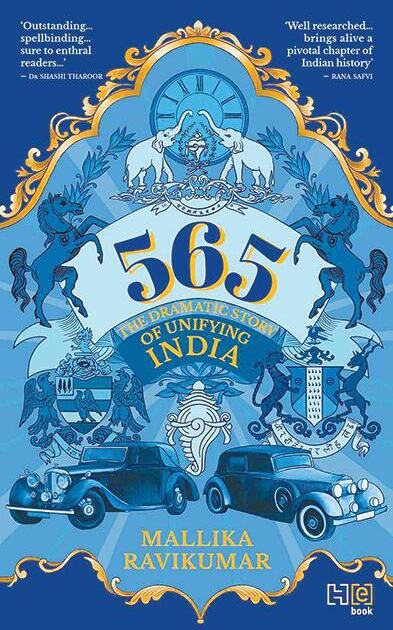

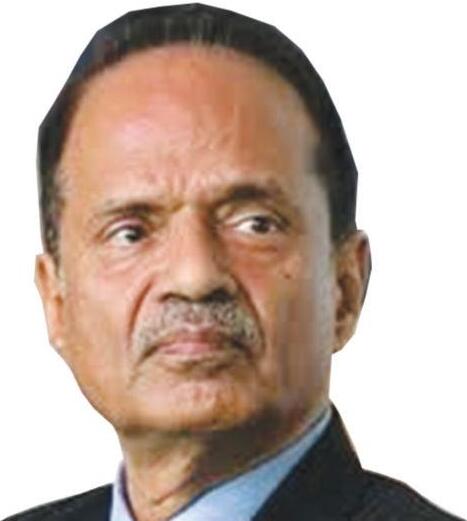
FI N A L LY the beginning of the end is here At first glance, the election of Jay Shah as the next chairman of the International Cricket Council seems like a mere reaffirmation of the old old principle of nepotism in every single area of our national life And since we are prone to celebrate every minuscule milestone let us note with pride that Jay Shah, who is only 35 years old, will be the youngest chairman of the controlling body of the international cricket After all, cricket is one of the few arenas of contest where India tends to perform well and therefore it is only befitting that an Indian should once again be heading the international regulator Thus when on December 1 2024 Jay Shah formally takes over the ICC position, India will get confirmed as an authentic vishwaguru A truly great achievement to mark the beginning of the Amrit Kaal
Admittedly there can be no doubt no discussion or debate that the only reason Jay Shah is set to become the next boss of the ICC is because his father is the junior partner in the old faltering ruling firm of Shahenshah and Shah True, Jay Shah happens to be the current secretary of the Board of Control for Cricket in India (BCCI) and is deemed to be the boss of Indian cricket But, again he is in that influential position only because of the power and influence of his father – a quintessential political boss and someone to be feared by friends and foes alike
It has been pointed out that Jay Shah has had no achievement or experience that would qualify or prepare him for a global role Not much is known of his educational qualifications nor of any substantive assignment in public or private sectors; his one and only asset seems to be his father s name and position This is that familiar preNaya Bharat family name working its magic in mysterious ways Fifty years ago,
Securities and Exchange Board of India down every area of regulation and governmental discretion in these last ten years has witnessed a return of all the old corrupt and corrupting practices and protocols – albeit with new justifications and with in-your-face brazenness, with the Great Demagogue
abDul baSit alvi

HINA and the US the two biggest economies in the world, have held their latest round of strategic communication, and will have more engagements in the field of commerce and climate soon
CPresident Xi Jinping met with visiting US National Security Advisor Jake Sullivan in Beijing on Thursday Xi pointed out at the meeting that in this changing and turbulent world, countries need solidarity and coordination, not division or confrontation People want openness and progress not exclusion or regress
As two major countries China and the US should be responsible for history for the people and for the world, and should be a
source of stability for world peace and a propeller for common development While great changes have taken place in the two countries and in China-US relations China s commitment to the goal of a stable healthy and sustainable China-US relationship remains unchanged, the principle of handling the relationship based on mutual respect, peaceful coexistence and win-win cooperation remains unchanged, its position of firmly safeguarding the country’s sovereignty security and development interests remains unchanged and its efforts to carry forward the traditional friendship between the Chinese and American people remain unchanged, Xi said Xi expressed the hope that the US side will work with China in the same direction view China
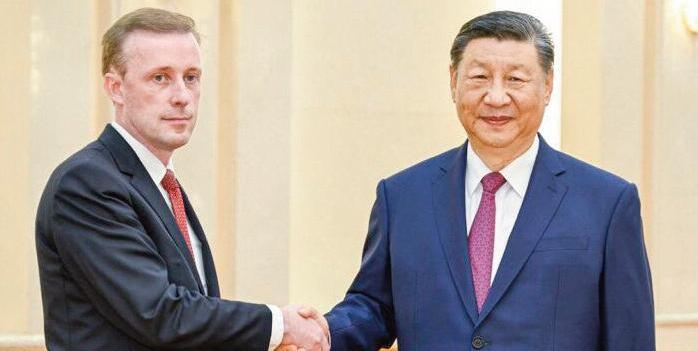
Suppor ting Private Enterprise: Why government should facilitate, not control
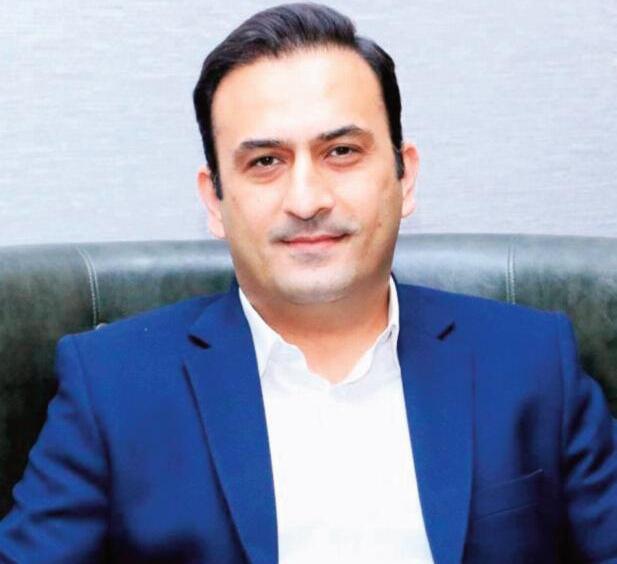
The core of the problem lies in the in-
conflict between governmental priorities and business imperatives Government agencies, focused on broader societal goals, may not always prioritize operational efficiency or market responsiveness Consequently state-run businesses may become burdened with inefficiencies that impede their profitability and growth In contrast private businesses are driven by the imperative to innovate, respond swiftly to market demands, and operate efficiently They thrive in an environment where the government plays a supportive role rather than a direct managerial one To cultivate a thriving private sector governments should focus on creating conditions that enable businesses to succeed rather than managing enterprises themselves
One of the most impactful ways a government can support private businesses is by simplifying regulations Complex and bureaucratic procedures can
be a significant barrier to entry for new and small businesses By streamlining regulatory frameworks and reducing red tape, governments can lower the cost of doing business and encourage entrepreneurial activity Access to capital is crucial for business growth Governments can facilitate private sector growth by improving access to financing through measures such as offering guarantees for loans, supporting venture capital initiatives, and fostering a competitive lending environment Such support can help businesses scale up and innovate without the fear of financial constraints To equip businesses with the skills needed for growth governments should invest in education and training programs that align with market needs By supporting vocational training and higher education institutions governments can ensure a steady supply of skilled workers who can drive business innovation and growth Encouraging healthy competition is essential for a thriving private sector A pertinent example of inefficiency in the management of state-related business is evident in Pakistan's power sector Recent analyses have revealed significant disparities in the power generation capacity of Independent Power Producers (IPPs)
IPPs and the Pakistani government To address these concerns and ensure transparency, a detailed forensic audit by the Supreme Court is necessary Such an audit would provide clarity on the terms of these agreements and potentially reveal instances of mismanagement or corruption that have contributed to the current inefficiencies
In summary while government support is crucial for nurturing private sector growth, it is essential that this support is directed towards creating an enabling environment rather than managing business enterprises directly The challenges faced by Pakistan s state-owned enterprises and the power sector highlight the need for a more effective approach By focusing on regulatory reform, facilitating access to capital, investing in infrastructure and education, and ensuring competitive market conditions governments can better support private enterprises and drive sustainable economic growth
‘Era of uninterrupted dialogue with Pak istan is over,’ says India’s Jaishank ar
marked that for any country neighbours are always a conundrum as are major powers due to their broad interests Major powers will always have an agenda, which will overlap with us, but to differing degrees, also diverge,” he was quoted by the Indian media as saying Referring to China Jaishankar noted “In the case of China you have a double conundrum because it s a neighbour and a major power So the challenges with China fit this double definition Jaishankar s comments came during the launch of the book Strategic Conundrum: Reshaping India s Foreign Policy” by former diplomat Rajiv Sikri, which examines India’s relations with its neighbours and the associated challenges The minister highlighted ongoing debates in the region regarding SAARC and BIMSTEC organisations focused on regional cooperation “All of you know the difference ” he said noting that these discussions underline the complexities of regionalisation The real issue is that of overlapping identities versus forging new ones So everywhere there is history at play, but there is politics that often contests history, and this in a way is a perennial challenge for India s relationships with all its neighbours ” Addressing India’s relationship with Pakistan Jaishankar said “I think the era of uninterrupted dialogue with Pakistan is over Actions have consequences and in so far as Jammu and Kashmir is concerned I think Article 370 is done So the issue today is what kind of relationship can we possibly contemplate with Pakistan He also emphasised, What I do want to say is that we are not passive, and whether events take a positive or negative direction either way we will react ” On India s relations with Afghanistan Jaishankar noted the existence of strong people-to-people relations and goodwill at the societal level
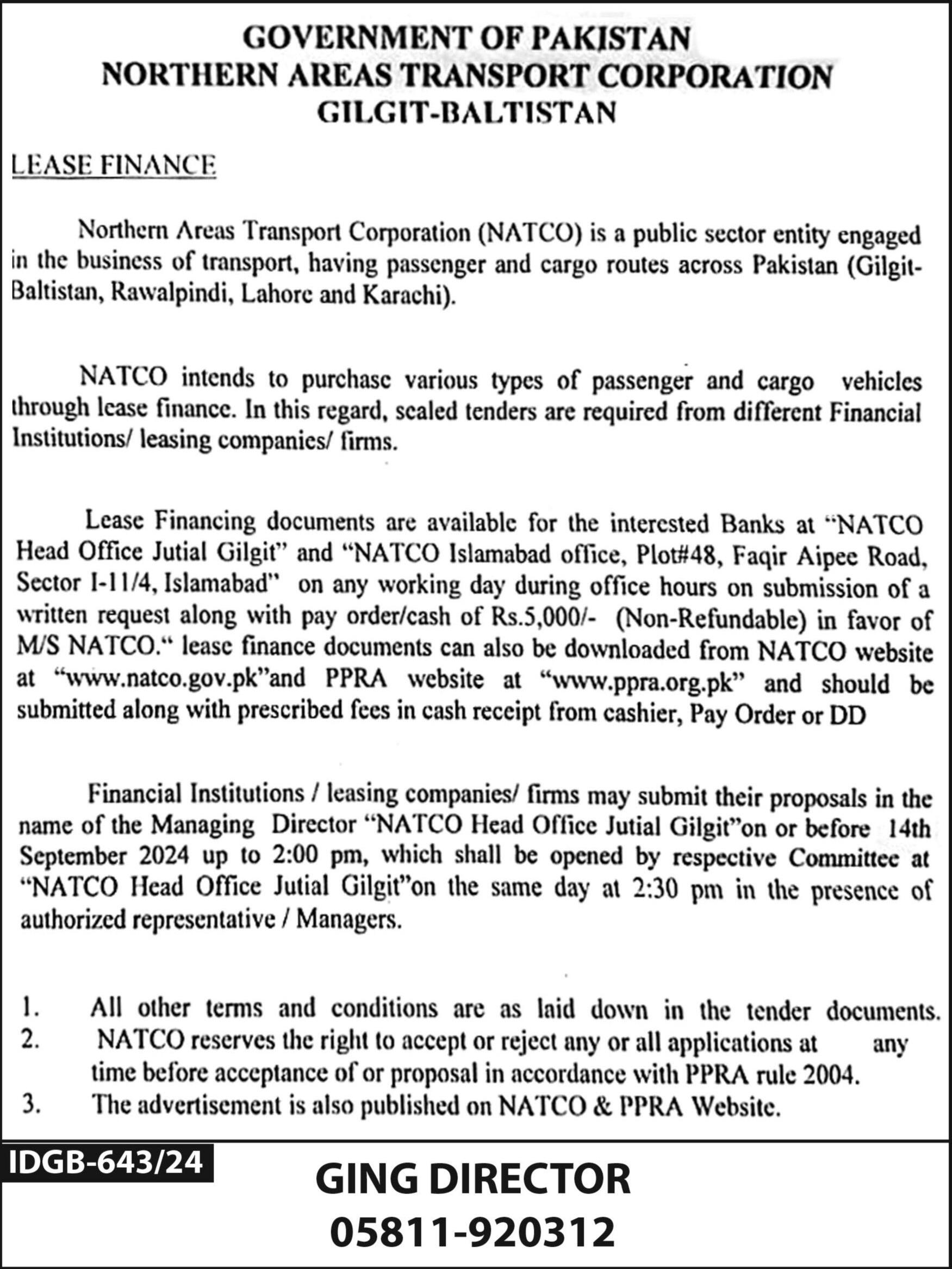


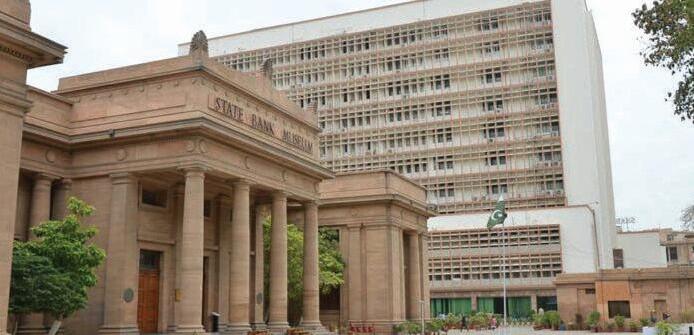

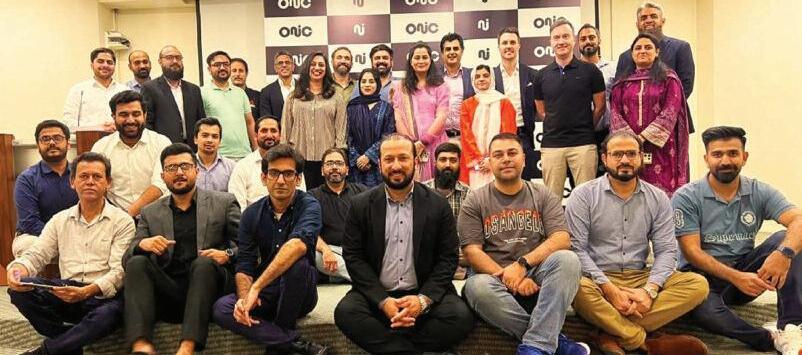

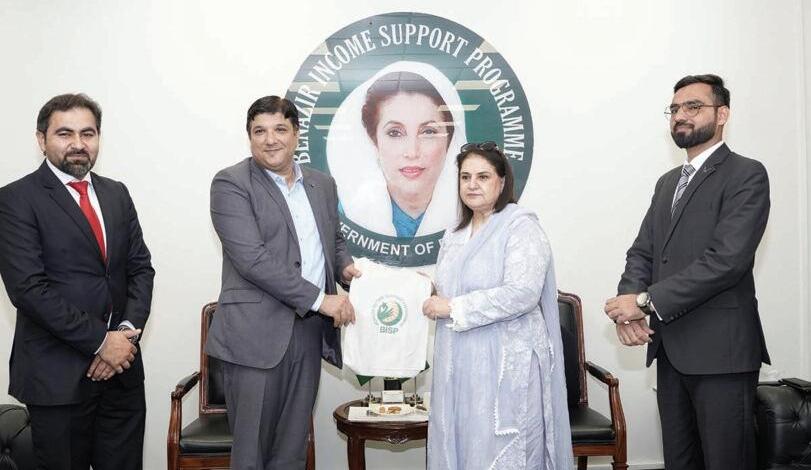
Haji Muhammad Aslam Khan Leader Tehreek-e-Pakistan Employees and Pensioners Labor Tehreek; Secretary General CDA Labor Union Izzat Kamal Pasha; PDUDC Central Joint Secretary Dr Changiz Khan; Raja Imran of Railway Union; Central President of Railway Union Asif Rasool; Raja Majeed Patron General of Municipal Labor Union Municipal Corporation Rawalpindi

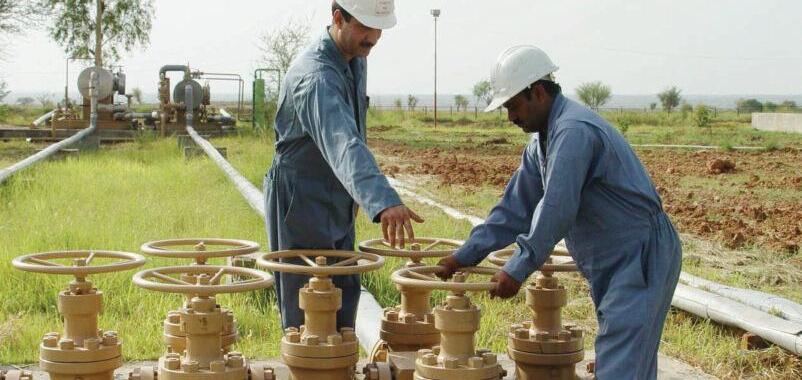
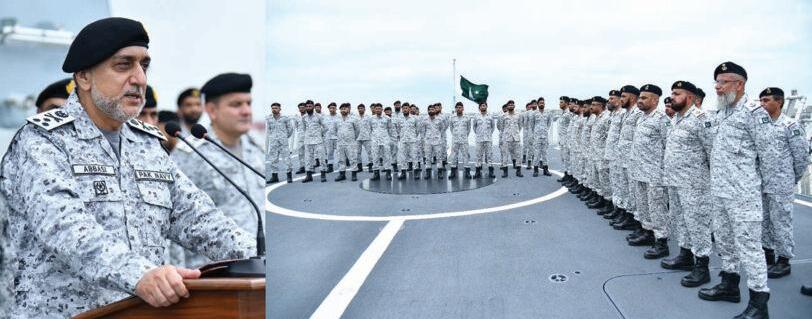
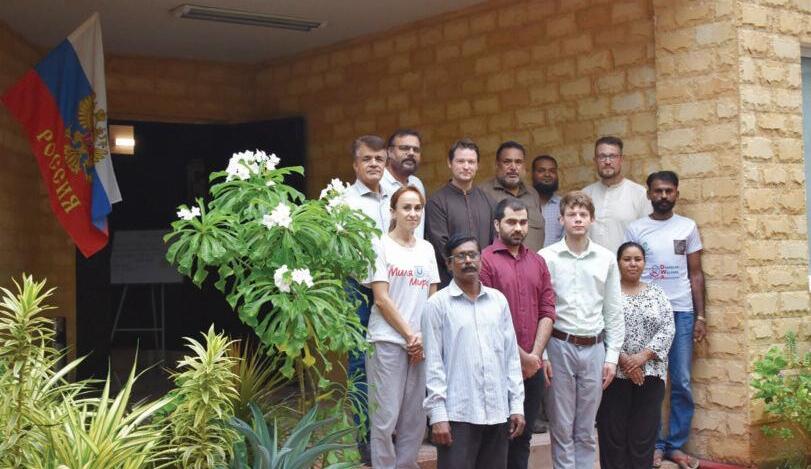

PAKISTAN, BANGL ADESH AGREE TO WORK CLOSELY FOR PROSPERIT Y
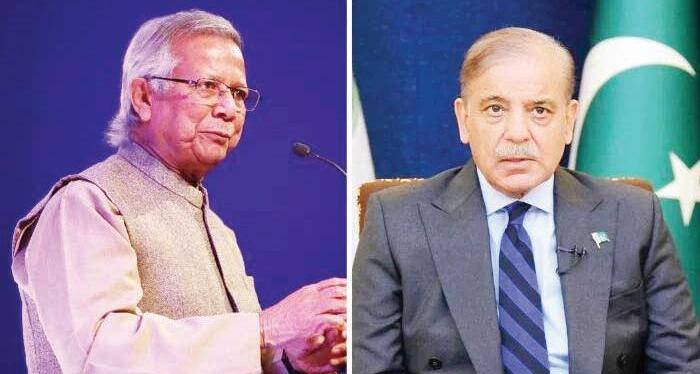

Babusar Top, Chilas, and the upper areas of Diamer experienced light snowfall at the end of August, enhancing the beauty of these tourist destinations Visitors to the Naran Valley are enjoying picturesque views of snowfall in August
The highest tourist spot in Mansehra s Naran Valley, Babusar Top along with Chilas and Upper Diamer received light snow, making the weather pleasant Babusar Top Valley is a mountain pass in Pakistan at the north of the 150 km long Kaghan Valley connecting it via the Thak Nala with Chilas on the Karakoram Highway (KKH) Babusar Top is the highest point in Kaghan Valley that can be easily accessed by cars It connects Khyber Pakhtunkhwa with GilgitBaltistan It is one of the more dangerous routes in Pakistan Babusar Top was originally known as Babur Top, originating from the
fact that the Mughal emperor Babur passed through this area in the early 16th century
The Kaghan Valley, with its summers from May to September, typically experiences a maximum temperature of 11°C (52°F) in May with a minimum temperature of 3 C (37 F) From mid-July until the end of September the road north of Naran remains accessible all the way to the Babusar Pass The Kaghan area is well connected by road to Islamabad and Peshawar
During winter the pass often closes due to heavy snowfall and harsh conditions Instead travellers typically use the Karakoram Highway to access the northern regions of the country
The mountain ranges that enter the Mansehra District from Kashmir are the offshoots of the great Himalayan system This range flanks the right bank of the Kunhar River and contains a peak called Malika Parbat, which is over 17,000 feet high and the highest in the valley
Diamer:
Diamer is a district in the Gilgit-Baltistan region linked to Tangir and Gilgit, Astore, Mansehra, and Upper Kohistan The Karakoram Highway passes through the Diamer District Before the Karakoram Highway was opened in 1978 the only road from the south to the town of Gilgit was a rough track north from Balakot to the Babusar Pass (via Kaghan, Naran, Besal, and Gittidas) and further north from Babusar Gah to Chilas
Chilas is the headquarters of the Diamir district of Gilgit–Baltistan The weather is hot and dry in the summer and dry and cold in the winter It can be reached by the Karakoram highway and also through the Kaghan Valley and the Babusar Pass Chilas is on the left bank of the Indus River The beautiful Fairy Meadows National Park and Nanga Parbat, the ninth-highest peak in the world, are also located in Chilas
and blocking all accounts involved in spreading propaganda against national institutions to ensure that hostile online activities do not compromise state integrity and security ### Internet Slowdown: Recently the Pakistan Telecommunication Authority (PTA) addressed the slowdown in internet services across Pakistan attributing it to the failure of several international submarine cables Of the seven submarine cables connecting Pakistan to global internet networks, two have sustained significant damage The PTA reported that the AAE-1 submarine cable has been repaired which should alleviate some internet issues However the SMW4 submarine cable continues to experience faults with repairs expected to be completed by October While the restoration of the AAE-1 cable is anticipated to improve the overall internet situation in Pakistan, full resolution will depend on the timely repair of the SMW4 cable The PTA had previously stated that internet users in Pakistan would continue to experience disruptions even after the initial deadline for resolution With the country now facing its 21st day of slow internet, officials have indicated that full restoration will take more time Last week, PTA Chairman Major General (retd) Hafeezur Rehman addressed the ongoing debate surrounding the installation of a firewall system clarifying in a carefully worded statement that the system in question is not a new firewall but rather an upgraded version of the web management system introduced during the PTI government
LAHORE S TA F F R E P O R T
Pakistan Tehreek-e-Insaf (PTI) senior leader and lawyer Barrister Ali Zafar the chapter of constitutional amendment by the government had been closed as the government had no two third majority Talking to media at Lahore High Court (LHC) he berated the incumbent government saying it s all efforts went in vain as it has no backing of two third majority required in the Parliament for constitutional amendment He highlighted that the government had not held any consultation
on constitutional amendment and PTI members couldn’t cast votes cooperating with the government Talking about speculations of PTI founder Imran Khan he stressed to challenge the military trial of Imran Khan as civilians couldn t be a military trial Responding to the appointment of a new Chief Justice of Pakistan he suggested Justice Mansoor Ali Shah must be CJP He also clarified that the judicial system must be amended but the government should take matters with due diligence and patience Barrister Ali Zafar insisted that PTI founder Imran Khan would be acquitted as witnesses in the Al
Qadar Trust case exposed everything Giving his response on the election of Imran Khan as Oxford University chancellor fiasco he reiterated that Imran Khan would be Oxford University chancellor and blamed that PML-N had conspired and showed dissatisfaction on Daily Mail story about the matter However Minister for Law Azam Nazeer Tarar and Attaullah Tarar negated the claims of constitutional amendment for extension of CJP tenure Azam Tarar also asserted that the Punjab government would decide about the military trial of Imran Khan
LAHORE S TA F F R E P O R T
Hundreds of Pakistani Arbaeen pilgrims have been stranded at Baghdad Airport in Iraq due to a lack of available flights with more than 50 passports reportedly lost by airport staff
According to media reports, the Pakistani Arbaeen pilgrims including women and children have been at the airport since 4am Friday, waiting for flights that have not been provided The affected Pakistanis said they were not being informed about when or how they would be able to travel We have been sitting hungry and thirsty at the airport since 4am, and no one is addressing our concerns,” one pilgrim said A female pilgrim stated “Our flight left for Islamabad at 9am leaving us behind in Baghdad The administration cannot find our passports ” She added that Iraqi staff at Baghdad Airport had taken their passports upon arrival in Iraq Pakistani citizens have appealed to the government for assistance in resolving the
